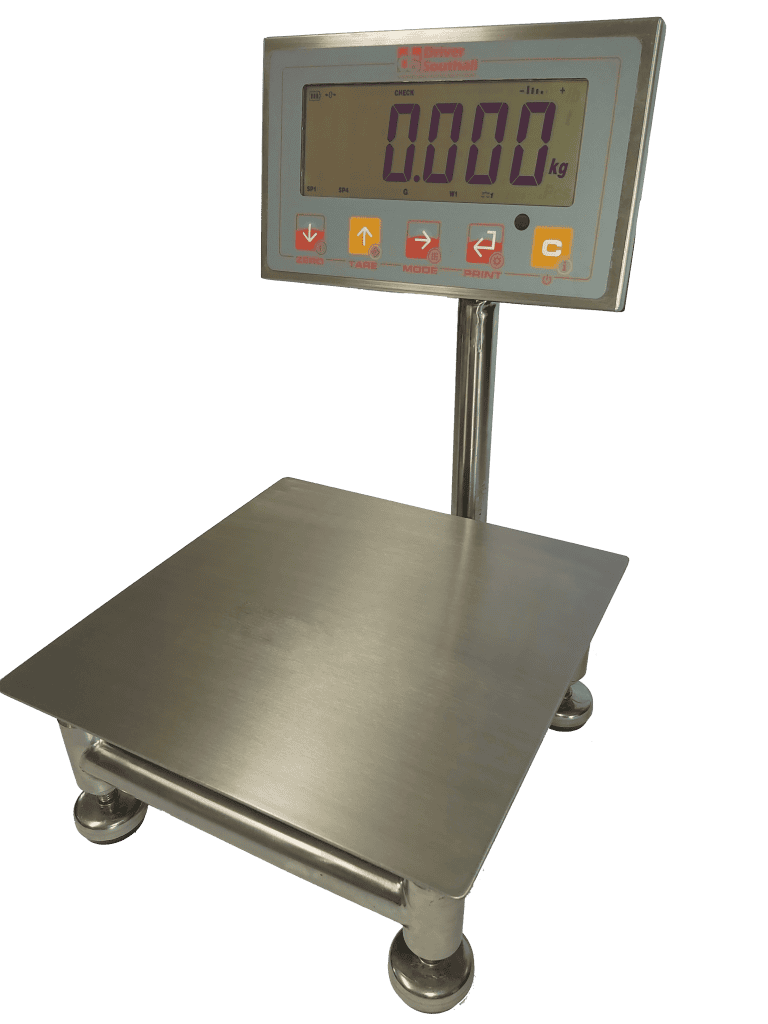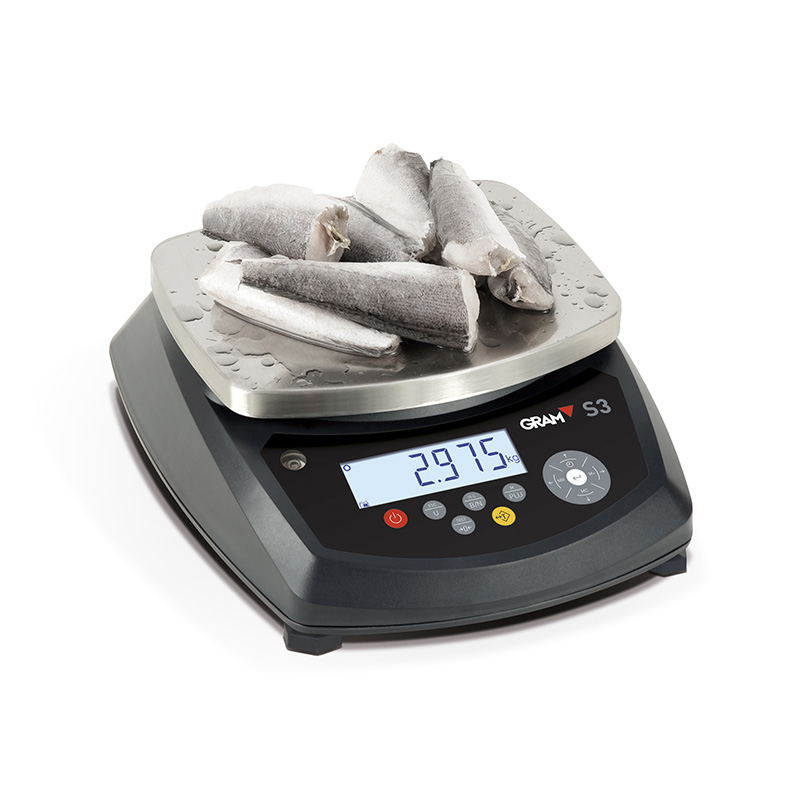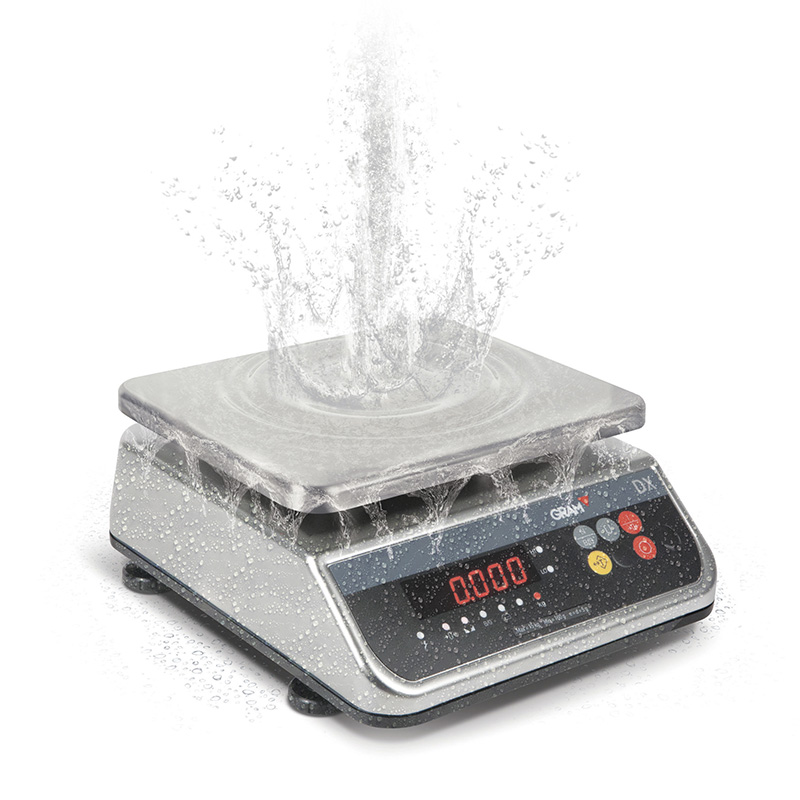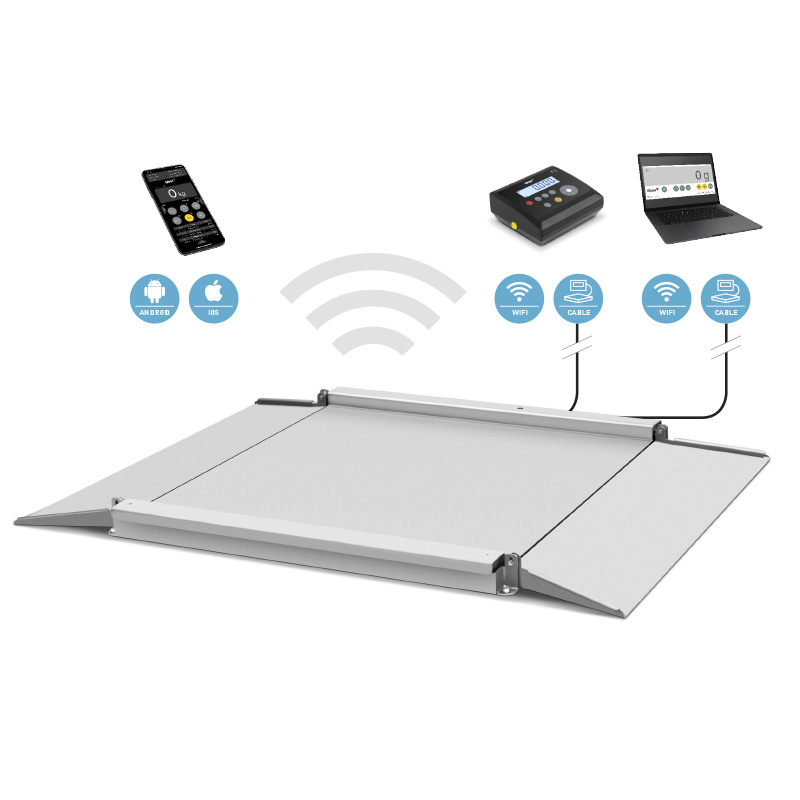Waterproof scales aren’t exactly the sort of thing that gets people talking over their morning coffee. But in the world of food production, they matter more than you might think. So let’s take a proper look at waterproof weighing scales and their role in the world of food processing.
What are Waterproof Weighing Scales used for?
Waterproof scales are used in food production areas where equipment must be regularly cleaned with water or sanitising agents. Such environments include meat and seafood processing facilities, dairies, bakeries etc.
Waterproof scales are designed to operate reliably even when exposed to water, steam, or cleaning chemicals.
It’s not just about protection either. If water gets inside a scale, it can mess with readings, cause intermittent faults, or simply stop working altogether.
And in a production line, that means downtime. And downtime costs money.
How do Waterproof Scales Benefit Food Processing Facilities?
As mentioned above, if your weighing system packs in because someone’s given it a good spray with a pressure washer, that’s not just frustrating. It’s costly. Water damaged electronics can lead to misread weights, full equipment replacements, or worst case scenario – product recalls.
Waterproof scales remove that risk. Because they’re sealed to prevent water ingress, you can clean them quickly and frequently, without needing to cover them up or remove them from the production line.
What is the Difference Between Waterproof and Washdown Scales?
While the terms are often used interchangeably, there is a distinct difference between waterproof and washdown scales. Washdown scales are splash resistant and can tolerate low pressure cleaning. They’re fine for environments where a wipe down or gentle spray is enough.
Waterproof scales, on the other hand, are built to handle high pressure washing and repeated exposure to water. These are the scales you’d want in a fish processing room or a meat cutting area, where everything gets a daily deep clean.
If you’re unsure which you need, it’s best to base it on your cleaning practices. Ask yourself: does your team clean equipment with a cloth, or with a pressure washer?
How Does IP Rating Affect the Performance of Waterproof Scales?
The higher the IP rating, the better protected the scale is against water and dust ingress.
Let’s decode that a little. IP ratings (short for Ingress Protection) are a global standard that shows how well electrical devices hold up against solids and liquids. They’re made up of two numbers – the first is for solids like dust, the second is for water.
For example, a scale with an IP68 rating is completely dust-tight and can survive full immersion in water for extended periods.
When selecting a waterproof scale, it is important to match the IP rating to the demands of your facility. For food processing environments with daily washdowns or high levels of moisture, IP67 or IP68 ratings are generally recommended. IP65 is sufficient for lighter tasks, but they won’t give you full waterproof protection.
Are all Stainless Steel Scales Waterproof?
No, not all stainless steel scales are waterproof by default.
It’s a common misconception. Stainless steel might look robust, but it’s the sealing that really matters. A stainless steel housing can still have gaps or unsealed buttons that allow moisture in. Always check the IP rating or ask the supplier directly.
Also, bear in mind that there are different grades of stainless steel. 304 is common and generally suitable for food environments, but 316 offers better corrosion resistance, especially in salty or acidic settings.
How Do I Maintain and Calibrate Waterproof Scales?
Although waterproof scales are built for rugged use, proper care is still essential.
It is advisable to perform visual inspections every so often. Check that the scale’s housing is intact, seals are undamaged, and no water has entered the internal compartment. Condensation or inconsistent readings may indicate that the seal has been compromised.
Calibration should be done at regular intervals using traceable weights. Depending on the criticality of the weighing process, this may be done weekly, monthly, or as required by internal or third-party quality standards.
In addition, digital waterproof scales often feature built-in prompts or diagnostics to assist with calibration. These features can simplify the process and reduce human error, making routine checks quicker and more reliable.
Looking for the Right Weighing Scale?
At Driver Southall, we’ve worked closely with food manufacturers across the UK to deliver weighing systems that hold up in the most demanding environments – including wet and washdown zones where standard equipment simply won’t last.
If you’re unsure which weighing scale best suits your application, we can help you make sense of IP ratings, cleaning requirements, and integration with your existing processes. Whether it’s part of a full checkweighing setup or a standard bench scale, we supply scales built for reliability, accuracy, and food-safe operation.
Simply contact us today on 01543 687090.




